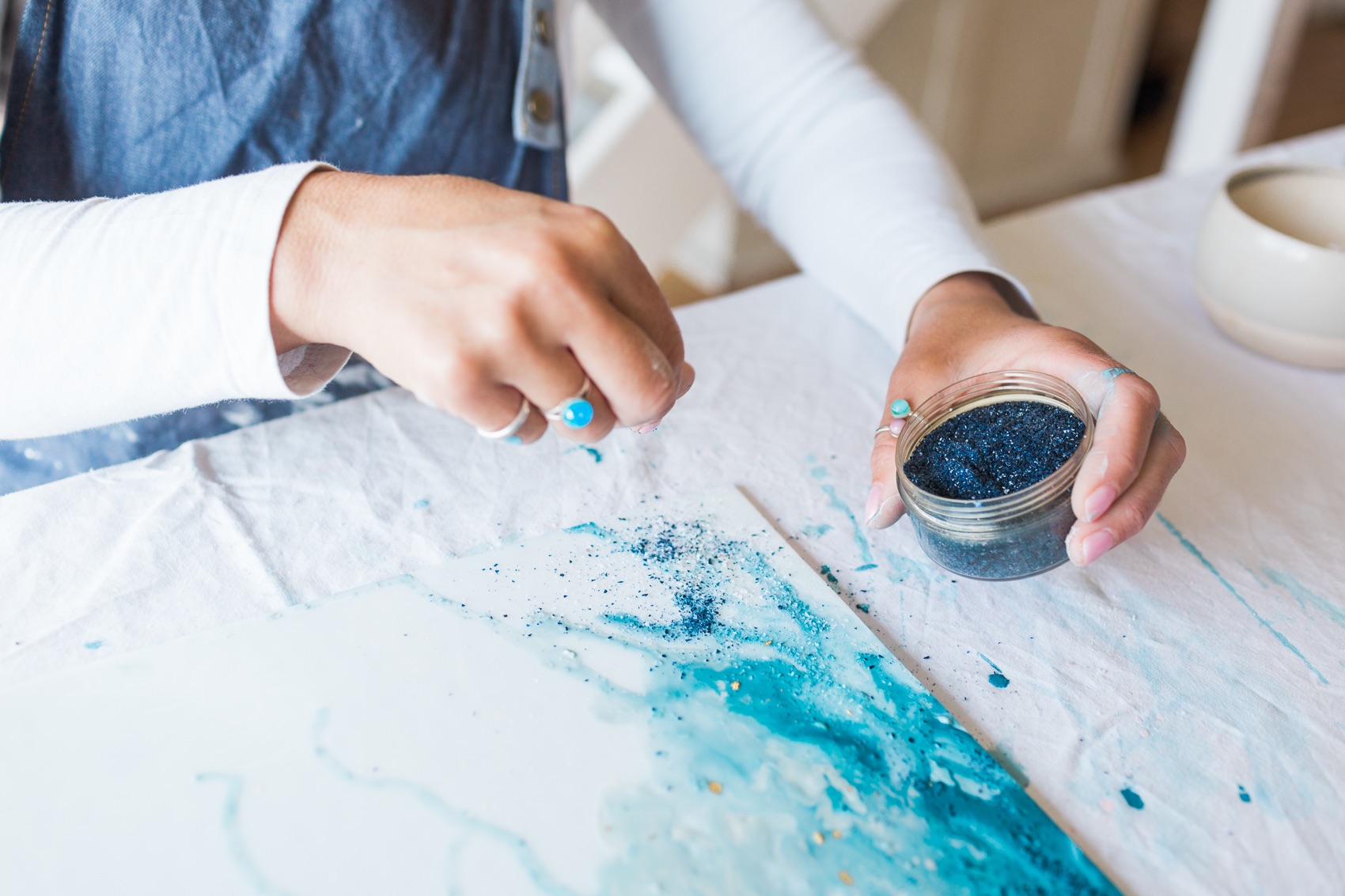
Glass and Painting Workshops & Retreats
Glass art & painting workshops at Furzebrook Studios, near Wareham, Dorset
For workshop content and dates info click here
Glass art & painting workshops for beginners and intermediate levels.
General fused glass and specialist / experimental glass & paint workshops.
Techniques: fusing, screen-printing, painting and embossing.
Materials: coloured glass fragments, granules, rods and metallic foils.
From £110 pp
At Furzebrook Studios, near Wareham, Dorset, BH20 5AX
Themes, ‘Seascapes, waves and meadows'
Glass is fired and ready in 14 days.
Postage is £9 or collect in person.
Stands & framing are available.
Gift vouchers are available here
Private group lessons are available.
Cancellation Policy - Workshop booking can be transferred to another date up to 10 days before the workshop. Sorry no refunds.
Art and Soul Women's Retreat
I’m absolutely delighted to be co-hosting Art and Soul Women's Retreats, a beautiful blend of engaging creative workshops, rejuvenating breathwork, and relaxing yoga giving you the opportunity to explore your creativity and nourish your soul alongside like-minded, inspiring women. The retreats are held at the gorgeous Gate House on the Deans Court Estate in Wimborne, Dorset. For more info click here
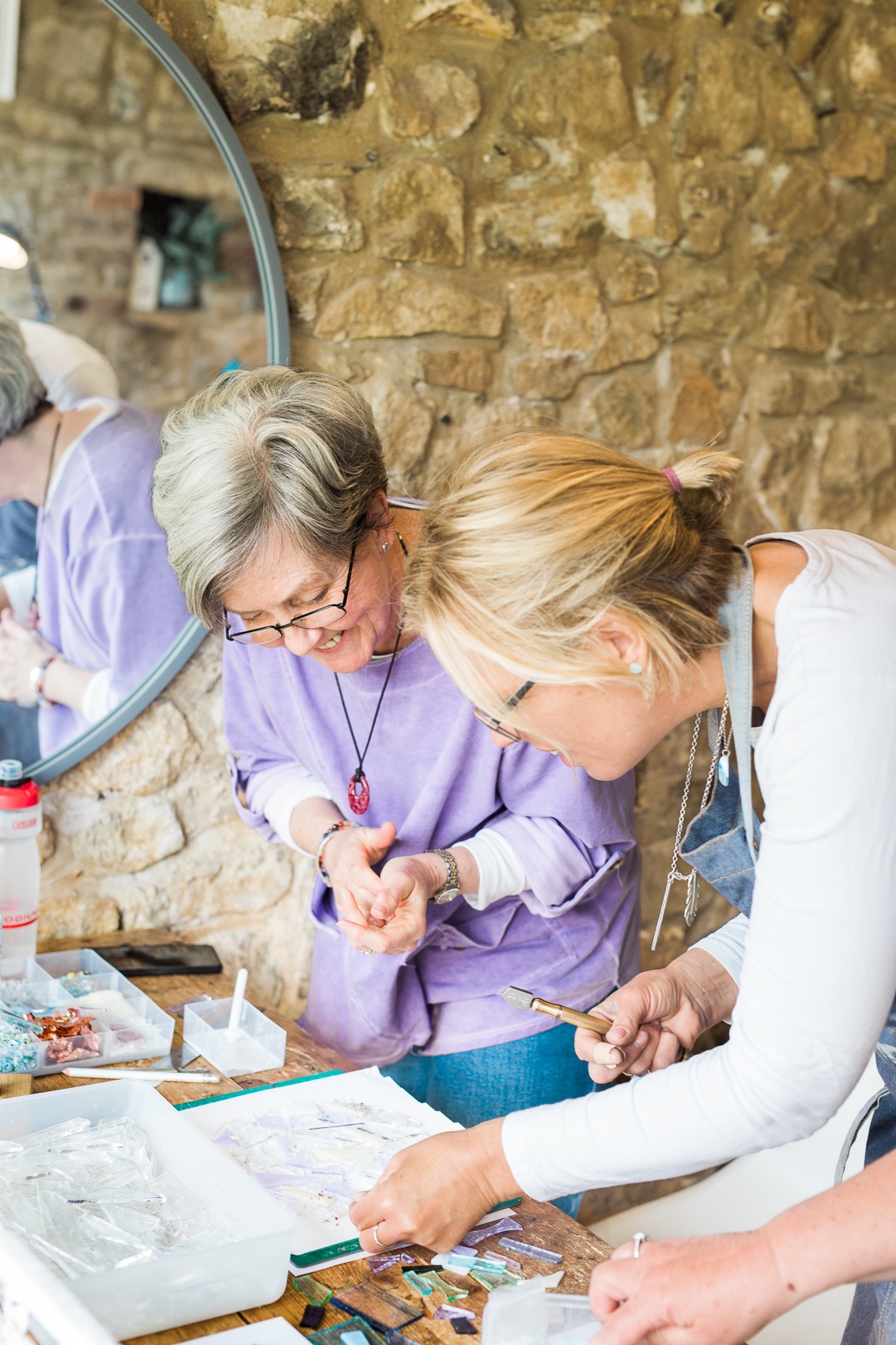

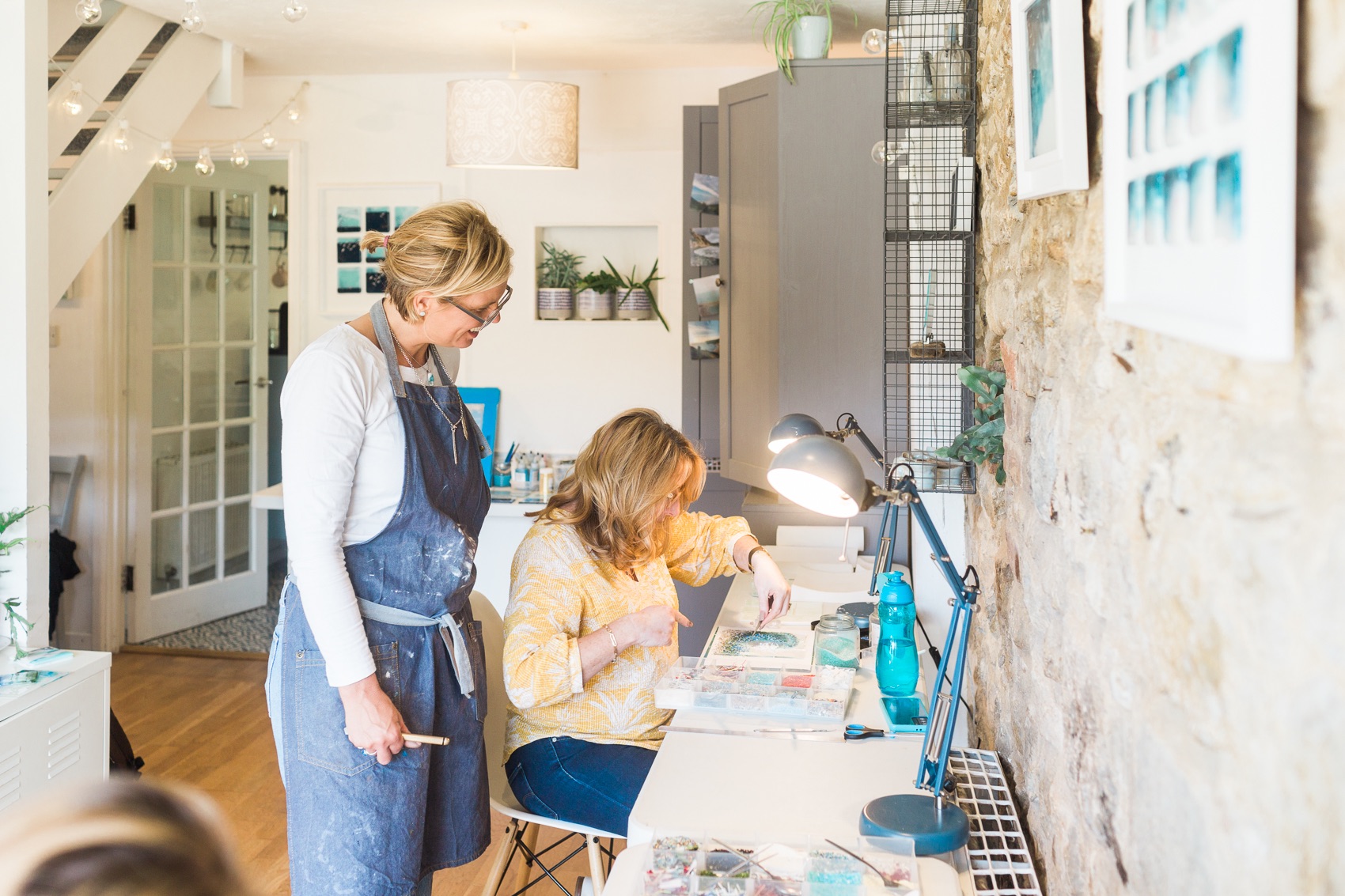
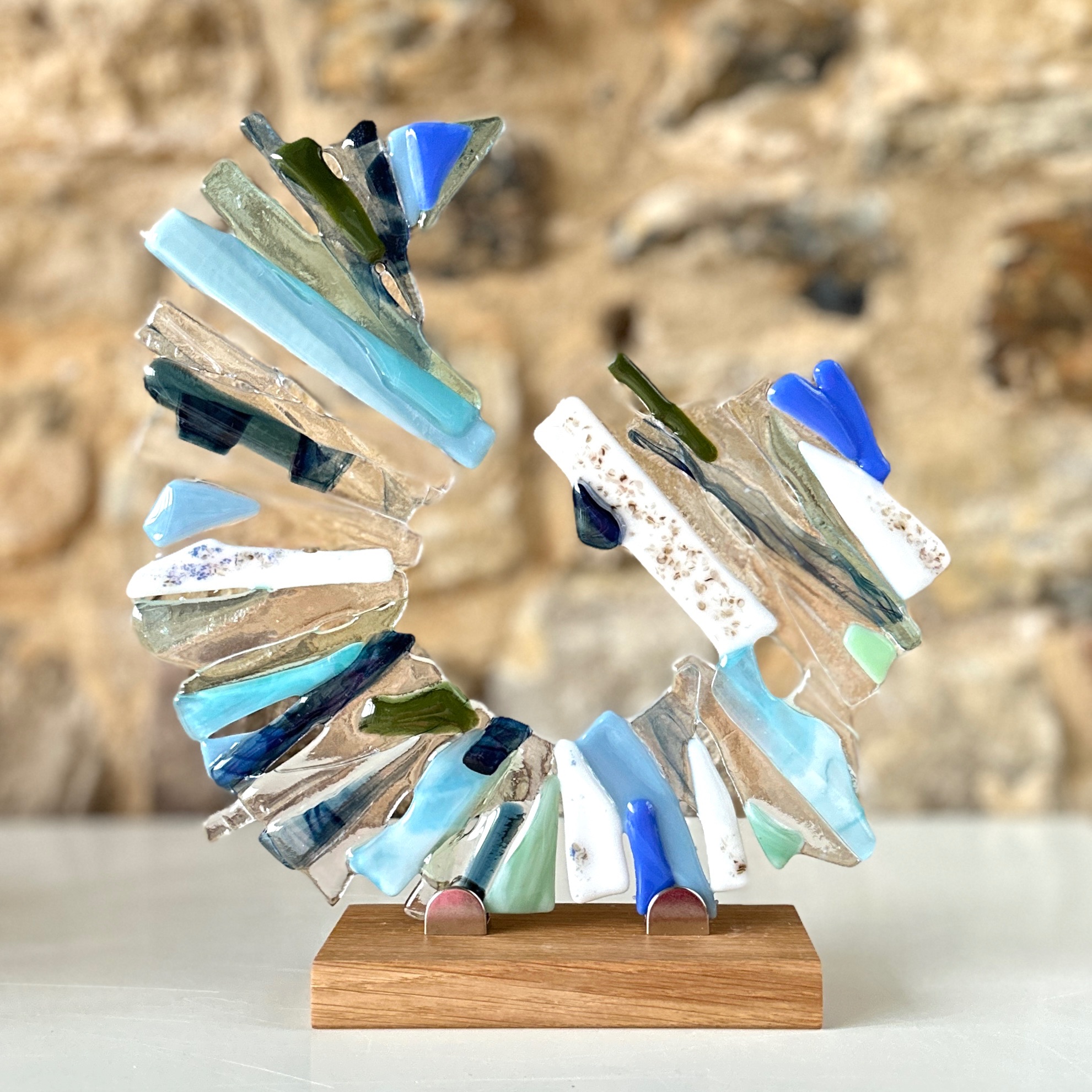
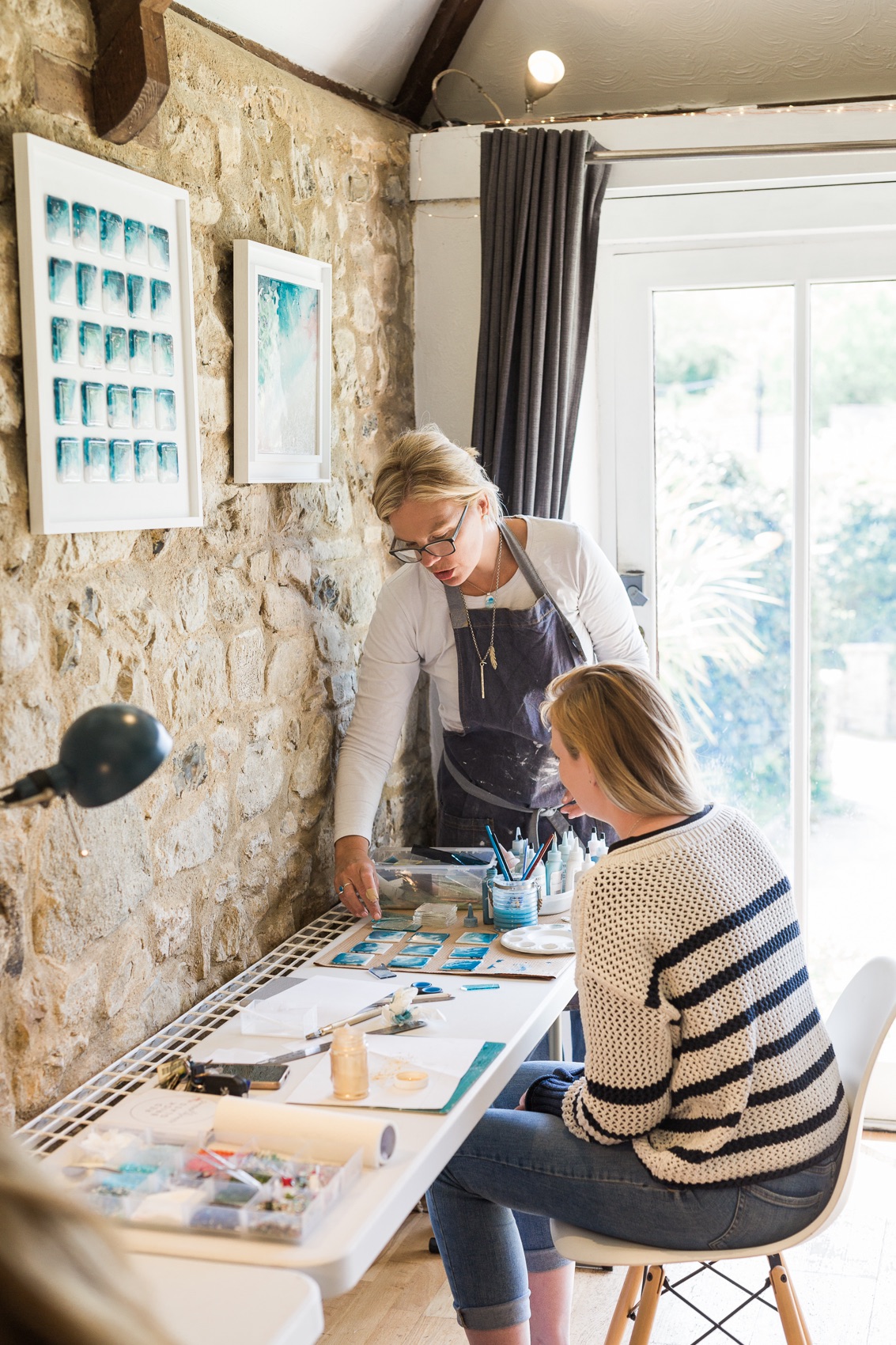




A little about me
I've worked with glass for over 25 years and love sharing my knowledge and skills during the workshops, helping you create gorgeous glass artwork. I graduated with a 1st class degree in glass from Edinburgh College of Art in 2000 then received the prestigious Crafts Council Start Up Award to purchase my first kiln.
9 years ago I moved into my new home and home studio near Lulworth Cove village and in 2026 I expanded into an additional studio and workshop space at Furzebrook Studios, near Wareham.
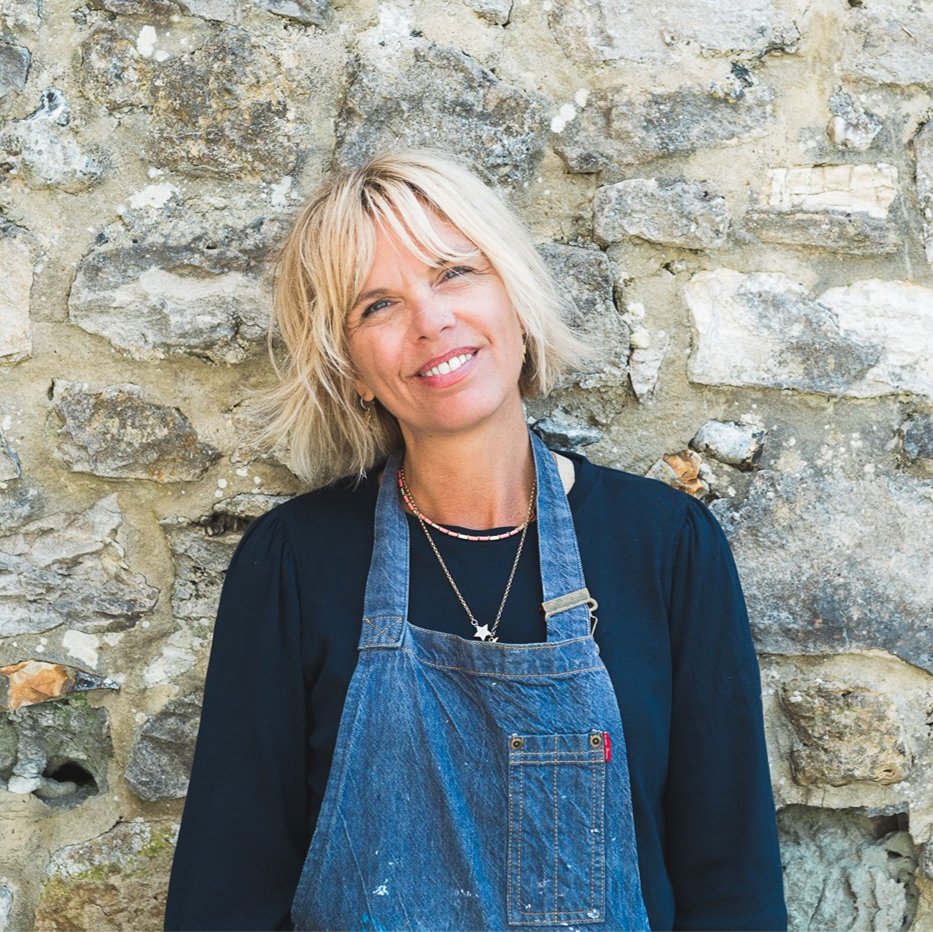
"Thank you so much for a morning of creative heaven! We had such an enjoyable time and it totally exceeded our expectations.
Wendy was so helpful, and ensured we had all the resources we needed to get started. Her passion and knowledge for creative glass was amazing, and she guided us through the best products to use and cut the glass for us individually - depending on what we were creating. We had a throughly chilled out session, which wasn't rushed or hurried. I can not wait to see the pieces once they've been in the kiln.
The studio is in an idealic place, with views of the Purbeck hills which was very calming and theraputic - just what's needed to create some beautiful pieces of glass art. I would definitely recommend Red Brick Glass, it was a morning of pure bliss".
I went to one of Wendy’s workshops with friends – we made a weekend of it and stayed in a local B&B. Had a great time - the opportunity to relax and create in a lovely home-studio space was most welcome. We were introduced to some simple techniques and could choose from a wide range of resources - beautiful glass in different textures and colours – where to start? Wendy was there to support and advise with adaptations and to model glass cutting skills. I made three different things in the session which I was really pleased with when they arrived beautifully wrapped a few days later. Thank you Wendy – highly recommend 5.
What is kiln formed / fused glass?
Fused glass (sometimes known as kiln-formed glass, warm glass or glass fusion) is a creative technique where two or more glass elements are fused together in a kiln. The glass comes in a variety of forms in a huge range of gorgeous colours: sheets (which are cut by hand), crushed glass, thin flakes rods and powders.
The kiln temperature can be controlled so at a lower temperature the glass will lightly stick together, keeping its shape (tack fusing) or at a higher temperature the glass will start to move, distort and melt together (full fusing). In the kiln the glass can also be bent over a plaster mould to take on the form of the shape like a bowl (known as slumping) or cast in a mould so the glass becomes completely fluid. Additional kiln formed techniques include embossing, screen – printing and painting. The temperatures at which glass is worked in a kiln are usually between 1000–1700°f (538–927°c) and the kiln firings often take 24 hours as the glass must cool down slowly.

